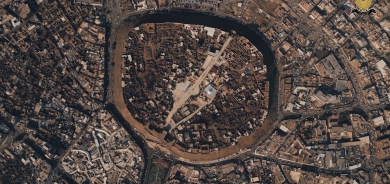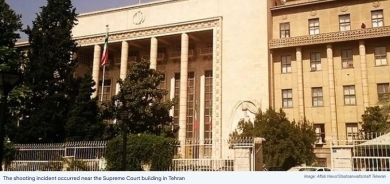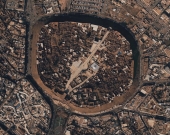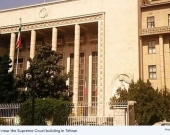Turkish corruption scandal deepens with firing of 350 police officers

The officers were sacked by a government decree published at midnight and included chiefs of the financial crimes, anti-smuggling, cyber crime and organized crime units, the private Dogan News Agency reported.
The move comes as the government is trying to contain the massive political fallout from the graft probe that has become the biggest threat to Erdogan's 11-year rule.
Erdogan has branded the investigation a "dirty" plot to try to topple his government, indirectly blaming supporters of a powerful exiled Muslim cleric who wields considerable influence in the judiciary.
Dozens of leading businessmen and political figures — including the sons of three ministers — were rounded up in a massive sweep in Ankara and Istanbul in December.
The once-unassailable Turkish strongman responded by sacking hundreds of police officials across the country, including the powerful Istanbul police chief.
Erdogan's critics accuse him of desperately trying to protect his cronies, and the appointment of Selami Altinok, a little-known governor with no background in police work, as Istanbul's new police chief was further seen as an attempt to shut down the investigation.
With the latest round of dismissals, the total number of police officers removed from their posts has risen to 560 in Ankara alone, according to media reports.
Turkish prosecutor Muammer Akkas was also barred last month from expanding the investigation — which could also reportedly target Erdogan's son Bilal — over allegations he leaked information to the media.
Erdogan v. the Gulenists
The probe has thrown the spotlight on a bitter feud between Erdogan's government and followers of influential Muslim scholar Fethullah Gulen, who has lived in self-imposed exile in the United States since 1999.
The so-called Gulenists — once staunch supporters of Erdogan's Justice and Development Party (AKP) —hold key positions in various government branches including the police and judiciary.
Turkey's Supreme Board of Judges and Prosecutors (HSYK), which appoints senior members of the judiciary, was meeting Tuesday to discuss allegations that prosecutors were blocked from carrying out further arrests, NTV television reported.
The crisis erupted on December 17 when police arrested dozens of people including sons of former ministers and the chief executive of Turkey's state-run Halkbank.
They are suspected of numerous offenses including bribery for construction projects and illicit money transfers to neighboring sanctions-hit Iran.
Police have conducted further raids in five cities after a six-month technical surveillance and detained 25 people on suspicions of bribery and fraud in tenders for construction projects, local media reported Tuesday.
Among those held were civil servants from the Turkish rail authority TCDD and the western port of Izmir, it said.
Erdogan has vowed to battle "a state within a state," apparently referring to Gulenists in the state apparatus.
Gulen has denied any involvement in the controversial inquiry.
His followers were key backers of the AKP when it came to power in 2002 but tensions emerged over the wave of anti-government protests last year and government plans to shut down a network of private schools run by the Gulen movement.
The turmoil has dealt a huge body blow to Erdogan's government ahead of key local polls in March and sent the lira plunging to all-time lows.
The graft probe has also exposed bitter fault lines in Erdogan's traditional power base and prompted calls from both his own party and the opposition for the resignation of the entire government.
The European Union, which Turkey has long sought to join, has urged the authorities to address the graft allegations in an "impartial manner."
GlobalPost














